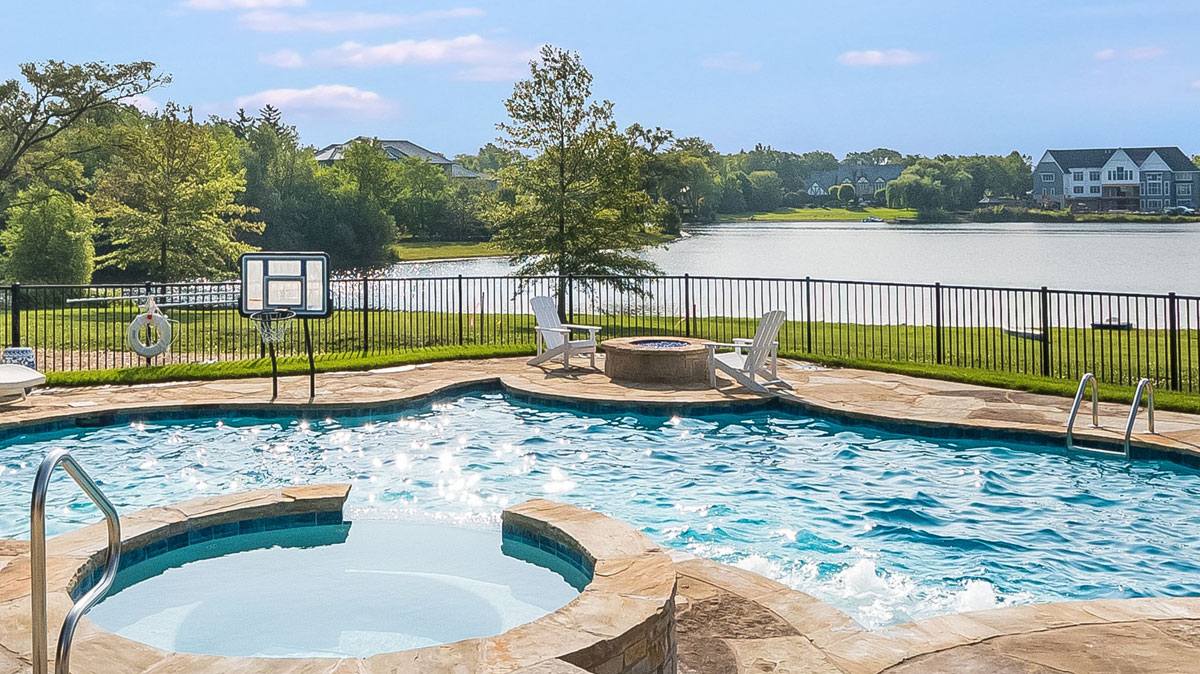
Owning a pool can bring endless enjoyment, but it also comes with the responsibility of ensuring safety. One of the most important safety measures for pool owners is installing a fence around the pool. In Illinois, there are specific requirements regarding pool fencing to help prevent accidents and unauthorized access, especially for young children. This article will guide you through some common fencing regulations in Illinois. However, it’s important to note that this is not legal advice—always consult with local authorities or a licensed contractor to ensure full compliance with the law.
Why is Pool Fencing Important?
Pool fencing is not just a good safety practice—it’s often required by law. A properly installed fence can:
- Prevent Accidental Drownings: Drowning is a leading cause of accidental death for young children, and a secure fence can help prevent unsupervised access to the pool area.
- Ensure Liability Protection: Homeowners with pools may be held liable for accidents that occur on their property. A fence provides an additional layer of protection against legal issues.
- Comply with Local Regulations: Failure to comply with pool fencing laws can result in fines and other penalties. Staying within legal requirements is critical for avoiding legal complications.
General Pool Fencing Requirements in Illinois
While specific regulations can vary by county and municipality in Illinois, there are some common guidelines that many pool owners must follow. Always verify these with local authorities, as laws may differ based on your location.
1. Height of the Fence
- Minimum Height: In most areas of Illinois, pool fences must be at least 4 feet (48 inches) tall. Some municipalities may require higher fences, such as 5 or 6 feet, to prevent children from climbing over.
2. Material and Design
- Climb-Resistant Design: The fence must be constructed in such a way that it cannot be easily climbed. Avoid horizontal rails or structures that children can use as footholds.
- Spacing Between Slats: The space between vertical slats should be narrow enough (usually no more than 4 inches) to prevent small children from squeezing through.
3. Gate Requirements
- Self-Closing and Self-Latching Gates: The gate providing access to the pool must be self-closing and self-latching. This means the gate automatically shuts and locks behind anyone entering or leaving the pool area.
- Latch Placement: The latch must be placed high enough—typically at least 54 inches above the ground—so that young children cannot easily reach it.
4. Barrier Location
- Setback from Pool Edge: Fences should generally be located at least 3 to 5 feet from the edge of the pool to create a safe buffer zone between the fence and the water.
- Pool Cover vs. Fence: In some municipalities, if you have a certified safety pool cover, the fence requirements may be relaxed. However, always check with local authorities before relying on this option.
Additional Safety Measures
Along with a fence, Illinois laws may require or recommend other safety measures:
- Pool Alarms: Some municipalities require pool alarms that alert homeowners if someone enters the pool area.
- Security Cameras: Installing security cameras can add an extra layer of safety, especially for families with young children.
- Lighting: Proper lighting around the pool can prevent accidents and help ensure visibility at night.

How to Ensure Compliance
Because regulations can vary widely, here are steps to ensure your pool fence meets local laws:
1. Contact Local Authorities
The first step is to contact your local government or building department to learn the specific pool fencing requirements for your area. They will provide you with the most up-to-date information on what is legally required.
2. Hire a Licensed Contractor
It’s essential to hire a professional contractor who understands local codes and can install a compliant fence. A licensed contractor will ensure that your fence meets all height, spacing, and safety requirements.
3. Obtain Necessary Permits
In many areas of Illinois, you’ll need a permit before installing a pool fence. Your contractor or local building department can assist you with the permitting process.
4. Homeowners Association (HOA) Approval
If you live in a community governed by an HOA, you’ll need to check with them regarding pool fencing requirements. Some HOAs have stricter rules than local ordinances, so it’s important to comply with both.
Liability and Insurance Considerations
While a fence is a critical safety measure, it may not fully protect you from liability in the event of an accident. Speak with your homeowner’s insurance provider to ensure you have adequate liability coverage for your pool. Additional insurance riders may be necessary to protect against potential lawsuits.
Important Disclaimer
This blog post is for informational purposes only and is not intended as legal advice. Pool fencing regulations can vary widely by location, and it is your responsibility to ensure compliance with local laws and ordinances. Always consult with a licensed contractor, local building authority, or legal professional for specific guidance regarding your pool fence.
Conclusion: The Importance of Proper Pool Fencing
Installing a compliant pool fence is an essential safety measure for any pool owner in Illinois. It helps prevent accidents, protects children, and ensures you’re following local laws. However, because regulations can vary depending on your municipality or HOA, it’s critical to consult with local authorities and professionals to ensure your fence meets all legal requirements.
If you need assistance with pool maintenance, repairs, or fence installation, contact Sunset Pools & Spas. Our team can guide you through the process, helping you create a safe and enjoyable pool environment for your family and friends.